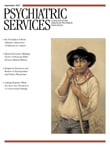This volume is based on the findings of the International Study of Schizophrenia, a project coordinated by the World Health Organization. The book has some 69 contributors from around the world. The first three editors, Kim Hopper, Glynn Harrison, and Aleksandar Janca, are from the Nathan S. Kline Institute in the United States, the University of Bristol in the United Kingdom, and the University of Western Australia, respectively. Norman Sartorious is the previous director of the Division of Mental Health at the World Health Organization.
Although somewhat difficult to navigate, this book offers some valuable and interesting information on schizophrenia worldwide. This work focuses on the results of a global longitudinal study of persons with schizophrenia by the World Health Organization. It concentrates on findings from 16 cities in 12 countries around the world. The International Study of Schizophrenia encompasses several treated incidence cohorts, primarily from earlier World Health Organization studies, with results supplemented with data from several Asian locations. In total, information was collected on 1,043 individuals, with follow-up times ranging from 12 to 26 years.
The book is laid out in a systematic manner. After the initial seven chapters describe the background and overall findings of the study, 16 chapters follow, each describing the studies in the different geographic locations. These chapters are grouped in clusters. Three centers—Agra, India; Cali, Colombia; and Prague—had been part of a World Health Organization study beginning in 1968 and had a 26-year follow-up period. Findings from a 15-year follow-up period are included from an additional seven locations: Chandigarh, India; Dublin; Honolulu; Moscow; Nagasaki; Nottingham, United Kingdom; and Rochester, New York.
Findings from three additional centers—Groningen, Netherlands; Mannheim, Germany; and Sofia, Bulgaria—where cohorts were followed for 14 to 16 years, are reviewed in a third group of chapters. Next are three chapters overviewing retrospective findings from centers in Beijing, Hong Kong, and Chennai, which the authors indicate were included to strengthen the "cultural diversity" of the report.
Finally, the book has an exhaustive tabular summary, comparing and contrasting the data from the various centers.
I found the organization of this work to be very complex. I had difficulty keeping in mind the differences in the parameters of the several substudies being reported. Nevertheless, the findings are most interesting. One salient finding reflected throughout the text is that schizophrenia seems to have a less disabling course in developing countries. Also the recovery rates reported in all locations tend to be considerably higher than those generally expected for persons diagnosed as having schizophrenia, raising significant questions about the traditional premise concerning the deteriorating course of the illness.
One caveat should be mentioned. The manuscript for this book was completed in 1999. There has been an unexplained, lengthy delay in its publication. Potential readers should be aware that information in this volume is more dated than one would expect in a volume with a 2007 publication date.

